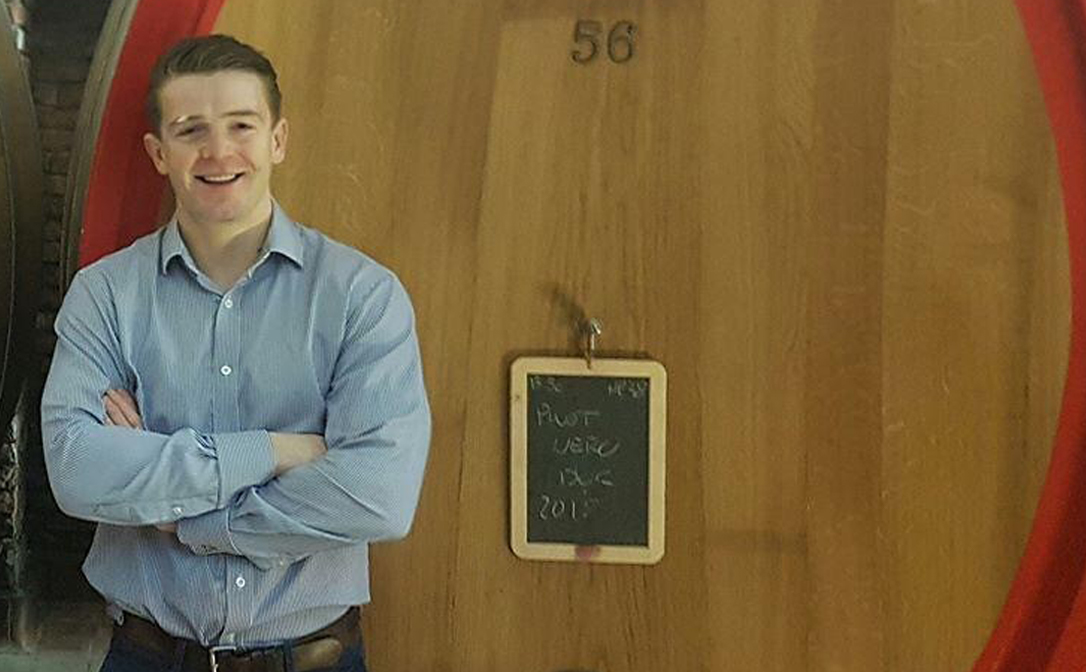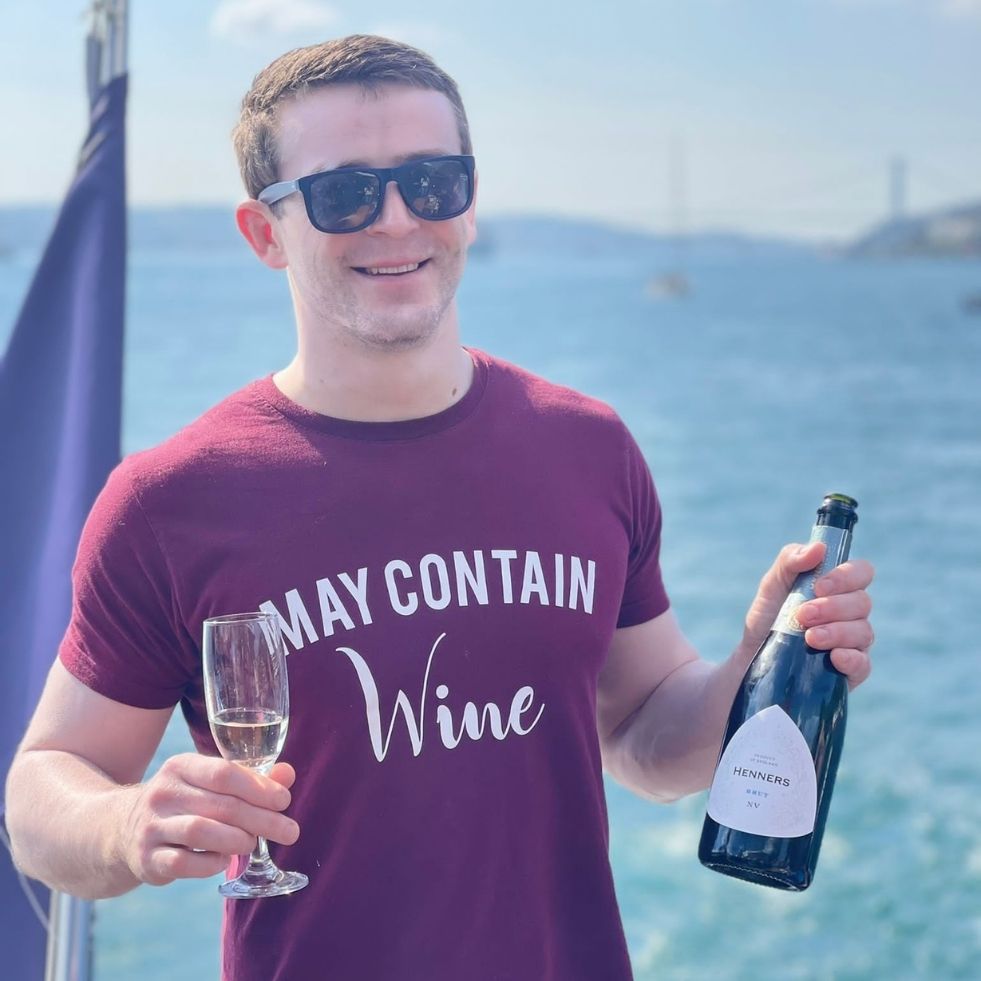
Mike Best MW
Wine Educator
Mike Best started his career in wine in ASDA's wine department in their head office in Leeds. He has since held various roles throughout the industry, working with multiple grocers and gaining experience in sourcing, transporting and bottling wine. He worked in business development for WSET for five years and became a WSET Certified Educator during this time. He has also worked vintages in Adelaide Hills and England.
Today Mike works for Boutinot, a distributor with a global portfolio, where he works with independent wine shops in the South-East of England. He passed the WSET Diploma in 2014 and became a Master of Wine in August 2020 - he is currently the youngest MW in the world!
Specialisms: Australia, New Zealand, English wine & wine business
Get to know Mike Best
1. How did you get into the wine industry?
I became interested in food and drink after getting a job in a gastro pub. Working there was the first time I had tried rare beef or tasted wine that was over £50 a bottle, and I decided that I wanted to work in either wine or hospitality. I was so curious about all the aspects of food and drink but after taking some courses, including WSET qualifications, I found myself applying for a job in wine sales and that was how it all started.
2. What is your favourite grape variety?
I think that where grapes are grown and how a wine is made is more important than what the grape variety is. Of course, variety has a huge impact on wine style and quality, but given they are so different it is hard to think about it like they are all the same. Take Colombard for example, which was and still is used as a base for bulk blends. Now you can find old vine Colombard selling for £30 a bottle. So it really is about where it comes from and how it’s made that makes the difference.
That said, if I had to pick one, I’d go with Shiraz.
3. Why do you think it’s important for people to learn more about wine?
If you watch a game of sport and you have no idea what the rules are, it won’t be anywhere near as interesting. If you’ve been watching a game for years, know the rules, as well as subtlety of the players and what they’re trying to do, the game becomes infinitely more enjoyable. The same goes for wine – the more you know, the more you enjoy it.
4. What do you enjoy most about teaching at WSET School London?
I like the fact that it is an international place – both London and the school itself. It’s great to have students with a broad range of backgrounds coming in.
A lot of people who do the courses are doing it for interest rather than work, which I really like as well.
A really key point is the fact that the samples are really good. That doesn’t mean that they’re necessarily always the best wines, but they will be wines which are the most appropriate to demonstrate what’s being discussed in class. The wines at WSET School London are constantly being curated by wine professionals who taste a lot of wine.
5. What are your favourite topics to teach?
Regions likes California, Australia, New Zealand, South Africa, as well as the classic regions of France.
I also really like to try to get across the understanding of how to think about wine. The materials are great for learning the facts you need, but the job in the class is to put all those pieces together. I like to ask students a lot of questions to help the learning process.
6. Do you have any advice for people wishing to enter the drinks industry?
I think getting involved can sometimes be quite difficult, but it’s just about reaching out to people really. From the outside, the industry can look glamourous, but you have to be prepared to do the not so fun jobs. 95% of the time you’re still on a spreadsheet, on the phone, stacking boxes – but the other 5% of the time it’s really exciting.
Getting involved with free initiatives is a good idea, like The Drinks Trust’s mentoring scheme.
And then the obvious answer – do a WSET course! However, it’s important to retain a sense of humility. When I passed the Diploma, I went to Australia and did a vintage, worked in a winery, and thought there was nothing else I could learn about wine. How wrong I was of course!
The wine world is very broad and there are so many opinions and perspectives. Know there will be a place for you and see what you can do to help others when you’re in the position to do so.
7. What are your top tip(s) for passing WSET exams?
Students tend to spend their time learning the theory and practicing tasting, but they rarely study how to write an answer for the exam. It’s seen as the boring bit, but it’s so important. Something I really drill into Diploma students is to have a clear, repeatable structure for the written answers, to ensure they include all the details required.
What you’re going to be asked in the exam is in the specification, so make sure you read that too!
8. How did WSET help you on your journey to becoming an MW?
Firstly, WSET gave me a foundation of knowledge to draw from. When I was studying for the MW exams, I used the WSET Level 3 Award in Wines textbook as the template for understanding wine regions. It’s like the bullet point version of the things you need to know for the MW programme. I actually think it’s one of the best books ever written about wine because it manages to simplify very complicated subjects without saying anything that isn’t true.
Secondly, it helped me create a network. The benefit of doing the qualifications in London is that it is arguably the hub of the world’s wine trade, and so you get to meet lots of people though the courses and events.
9. In your opinion, what is the future of the wine industry?
There are top producers coming out of every single region in the wine world now. Regions like North West Spain and South Africa are creating their own niches for fine wine and I think that is going to continue.
We’re living through a great number of challenges, such as climate change. But we’ve got through challenges before. We read about Phylloxera as if it’s a footnote in wine education, but it almost destroyed the entire industry. Whatever we are faced with, I’m sure we will adapt to it.
10. What is your dream job?
I really like my current job at Boutinot Wines. We buy, make, and sell wine. This means I get pressure from all sides, but for me it’s the most interesting place to be because I get to be involved with every part of the process, and work with different types of wines and customers.
11. What is your proudest achievement?
Completing the Master of Wine programme is the obvious answer.
Once you’re an MW, you can become a mentor for new MW candidates and support them. I’ve so enjoyed helping current MW students and I’m so keen to support people all the way through the programme. I haven’t been an MW long enough to do this yet, but I’m really looking forward to it.

WSET gave me a foundation of knowledge to draw from. When I was studying for the MW exams, I used the WSET Level 3 Award in Wines textbook as the template for understanding wine regions.

